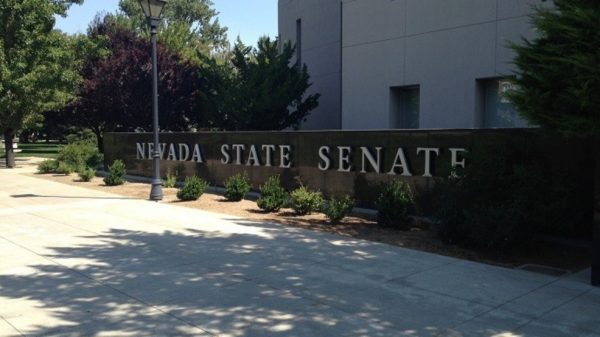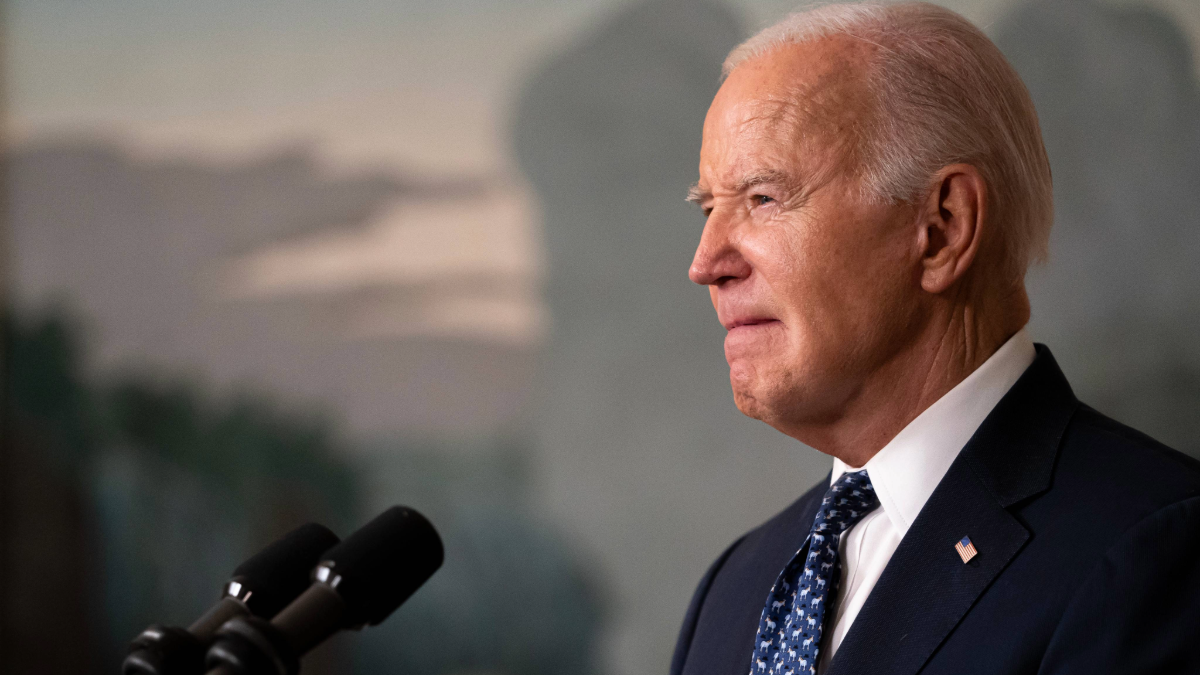
LAS VEGAS, Nev. – Democratic State Senator Dallas Harris, a prominent figure in Nevada’s progressive political landscape, who serves as the Chief Majority Whip in the Senate, recently granted The Blade an exclusive interview delving into her experiences as a mother, wife, lawyer, and legislator.
On December 4, 2018, the Clark County Commission appointed Harris to represent the 11th District, replacing Sen. Aaron Ford (D) who assumed the role of Attorney General. In the legislature, Dallas focuses on criminal justice reform, LGBTQ issues, and advocating for underserved communities.
A steadfast dedication to public service has marked Dallas’s trajectory. From 2015 to 2017, she served as a Policy Extern at Public Knowledge, a non-profit organization based in Washington, D.C., advocating for expanded broadband access and consumer protections. Dallas then returned to her roots in Nevada, where she served as an Administrative Attorney at the Public Utilities Commission, gaining firsthand experience in state government and utility regulation.
Since August 2019, Dallas has served as a Consumer Rights Attorney in the Adult Guardianship Project at the Legal Aid Center of Southern Nevada, where she continues to champion the rights of vulnerable populations.
Outside of her legislative duties, Dallas is Of Counsel at Davison Van Cleve, a law firm specializing in energy law.
Dallas lives with her wife of five years, Summer Thomas-Harris, and their two children ages 12 and 2.
A Love for Las Vegas
Harris spent her formative years in the bustling heart of Sin City, where her journey toward public service and advocacy began.
“I was born in the eighties, and I’ve seen the city grow quite a bit since then,” Harris told The Blade. “I like seeing the growth.”
Harris proudly described Las Vegas as a “gem” that people have been “stumbling upon.”
“I like that there are so many folks realizing how nice it is here. The weather is great and, until recently, the cost-of-living was pretty low.”
“Another thing I love that has changed is that we now have home teams that are actually doing very well,” said Harris, who enjoys frequenting Las Vegas Aces games with her wife and friends.
Harris expressed her relief that her cherished city doesn’t suffer from the overcrowding and congestion plaguing other urban hubs. However, with Biden’s recent announcement of a $3 billion grant for constructing a high-speed rail, promising to slash the commute time from Los Angeles to Las Vegas to a mere two and a half hours of comfortable, air-conditioned travel with Wi-Fi access, the once-intimate atmosphere of Vegas is bound to experience a significant influx of residents in the near future.
But Harris said she is not worried.
“People from Southern California have always wanted to come to Las Vegas,” Harris said. “We have always been a draw for people trying to get away from the busy life of Southern California and find some adult fun in Las Vegas. The rail is going to make it a lot easier for that to continue to happen, but the relationship between Southern California and Las Vegas has been there for a very long time.”
Queerness
The senator reflected on her upbringing and the role models who paved the way for his authenticity.
“I could never really hide my queerness,” Harris said, highlighting her lifelong journey towards self-acceptance. “It’s never been an option for me ever since I was very, very young.”
Acknowledging the progressive environment of her upbringing in Nevada, Senator Harris credited political predecessors like Senator David Parks for fostering an inclusive atmosphere: “My childhood was in the top 90% of what it could’ve been in America in terms of openness about being queer,” she said. “I realize that it took the intentionality of folks like Senator David Parks to create this environment for a kid like me to grow up in”
Senator Parks was the first openly LGBTQ Nevada lawmaker in the legislature.
However, Senator Harris also acknowledged the challenges she faced, particularly from family members with religious views. “Some family members had religious views and sort of an underlying uncomfortableness about all of this,” she revealed. “It was underneath the surface. It was definitely there…But I just kept going.”
Despite these challenges, Senator Harris emphasized the importance of perseverance and the support of loved ones. Laughing, she said, “Sometimes I think my mom likes my wife better than she likes me.”
Work/Life Balance

“The work-life balance is tough,” admitted Senator Harris. “I think it’s hard on anyone who does something like this.” She highlighted the demanding nature of her job, where she is essentially away from home for months at a time due to legislative sessions.
Adding to the complexity, Senator Harris and her wife both have full-time jobs, further complicating their efforts to balance work and family responsibilities. “It can be a struggle to give yourself enough to all of those different identities,” said Harris. “It’s not a walk in the park.”
To navigate the chaos, Senator Harris and her wife rely heavily on meticulous scheduling.
“We use lots of scheduling. We have a meal plan. We sit down and plan out our entire week every Sunday,” she explained. This proactive approach ensures they stay organized and know who is responsible for childcare, school pickups, and other daily tasks.
Despite the challenges, Senator Harris emphasized the importance of prioritizing her marriage amidst the chaos. “We have been working to carve more space out for us,” she said. “We try to have time with other adults and have fun but also find time for us to connect.”
Reflecting on her role as a mother, Senator Harris highlighted the insights she gained into the realities faced by many women in the workforce.
“The thing about being a mother that has affected my view is not just the fact of having a child but the fact of managing a family,” she shared. “Because that is what we so often are in the US. We are the managers of a family. I think I better understand now what it’s like for women to be in politics and for women to be in power.”
Tennant Landlord Laws
Harris, whose personal experiences deeply influence her legislative approach, shared her perspective on tenant-landlord laws.
Growing up with a single mother and moving frequently, Harris gained firsthand knowledge of the challenges faced by tenants, particularly in dealing with security deposits and maintenance issues.
Reflecting on her upbringing, Senator Harris emphasized the impact of living in apartments with 12-month leases where rent increases often necessitated frequent moves. “I’ve lived in a lot of apartments,” she stated, highlighting the frustration of tenants who diligently clean their units only to face disputes over security deposit deductions. “You clean the apartment from top to bottom, but the landlord still claims you owe them something from the security deposit,” Harris recalled. “I know that fight.”
Senator Harris’s commitment to addressing these issues was evident in a bill she introduced Senate Bill 381, a measure aimed at protecting tenants from being charged for repairs and maintenance tasks that are the responsibility of landlords. The bill, sponsored by Senators D. Harris, Donate, Spearman, Flores, Daly, Krasner, Lange, Neal, Ohrenschall, Scheible, and Stone, received approval from both the Senate and Assembly.
Existing law in Nevada mandates landlords to maintain dwelling units in habitable conditions throughout a tenant’s stay. SB 381 reinforces this requirement by prohibiting landlords from imposing fees or charges on tenants for repairs, maintenance tasks, or other work that the landlord is obligated to perform to maintain the habitability of the unit.

Education
Growing up, Harris found her passion not just in the bright lights but also in sports and education. She actively participated in various youth sports, with a particular fondness for tennis, basketball, and Taekwondo. Due to her frequent moves, Harris navigated through several schools across Clark County, including Parsons Elementary, Swainston Middle School, Lied Middle School, Las Vegas Academy (where she majored in Theatre), and Green Valley High School.
After graduating from Green Valley High School, Dallas embarked on her higher education journey at the University of Nevada, Las Vegas (UNLV). In 2008, she obtained a Bachelor of Arts in Psychology, followed by another Bachelor of Arts in Computer Science in 2009. Eager to delve deeper into policy and public service, Dallas ventured to Southern California to pursue a Master’s degree in Public Policy at Claremont Graduate University. Her studies focused on economics, policy analysis, and statistics, providing her with a robust understanding of the intricacies of policymaking.
With a thirst for knowledge and a drive to effect change, Dallas then set her sights on law school, making her way to the nation’s capital. She enrolled at the George Washington University Law School, where she honed her legal acumen and gained invaluable insights into the intersection of law and policy. In 2005, Dallas emerged from law school equipped with a new perspective and a determination to make a difference.
Harris’ diverse educational experiences in the Clark County School District laid the foundation for her commitment to improving education in Nevada. Through Senat Bill 543, Harris was able to revise what she called an “archaic” school funding formula to allow for a substantial increase in school funding throughout Nevada.
Gun Reform
In a move aimed at tightening firearm regulations and addressing hate-motivated crimes, Harris introduced Senate Bill No. 171. The bill, sponsored by Senators D. Harris, Spearman, Donate, Flores, Ohrenschall, and Scheible, sought to prohibit the purchase, possession, or ownership of firearms by individuals convicted of violent hate crimes, as well as to impose a ten year cooling off period for those who had committed any nonviolent crimes.
Under existing laws, crimes committed with motives such as race, color, religion, national origin, disability, sexual orientation, or gender identity are punishable as gross misdemeanors. Additionally, individuals convicted of certain crimes are already prohibited from firearm ownership.
Harris told the Blade that she was disappointed that the bill was ultimately vetoed, as it represents what The Senator sees as a glaring misstep in the handling of gun distribution in her state. With school and mass shootings ever increasing throughout the US, Harris plans to continue to push for gun law reform.
HIV Modernization
In a proactive step towards strengthening public health initiatives, Senator Harris played a pivotal role in fortifying Senate Bill 275, a comprehensive legislative initiative tackling communicable diseases. The bill , which garnered bipartisan backing, introduces crucial provisions aimed at elevating disease prevention and control strategies statewide. Notably, the bill seeks to transform the approach towards HIV, recognizing it as a medical diagnosis rather than a criminal offense—a significant shift towards destigmatizing and addressing the condition effectively.
One of the notable aspects of SB 275 is the authorization for the appointment of quarantine officers when necessary to enforce quarantine measures. This provision aims to strengthen the enforcement of quarantine protocols, particularly during public health emergencies.
Additionally, the bill empowers health authorities to adopt reasonable fees for issuing or renewing health permits or licenses required by state law or local ordinances. These fees are designated to cover the costs associated with issuing permits and conducting related investigations, without relying on general revenue.
Moreover, the legislation emphasizes the importance of public health measures over criminalization in addressing the spread of communicable diseases. It underscores the need for a balanced approach that prioritizes public health interventions.
Additionally, it allows for testing and disclosure of information related to exposure to communicable diseases under specific circumstances while emphasizing confidentiality and the protection of personal information.

Looking Forward
Senator Dallas Harris, known for her advocacy for community well-being and economic growth, recently shared her vision for the future of Las Vegas. In her aspiration for an ideal Las Vegas, she emphasized the importance of creating a more accessible and pedestrian-friendly city.
“My ideal Las Vegas of the future would have more bike lanes and more walkable areas and more centralized zones,” Harris said. “Everything would be a little bit closer together…. Quality of life would go up in that way. “
Her vision aligns with efforts to enhance the livability of the city, making it easier for residents and visitors to move around and access amenities without relying heavily on cars. By prioritizing walkability and bike-friendly infrastructure, Harris’ vision aims to improve public health, reduce traffic congestion, and promote a sense of community connectivity.
Moreover, Senator Harris highlighted the importance of economic diversification in ensuring the city’s resilience and prosperity. “I would like to see more diversification in our economy,” she said. “I would love to see our economy get even stronger by broadening out and inviting in all of the different industries.”
By fostering a more diverse economy, Las Vegas could potentially reduce its reliance on a single industry, such as tourism and hospitality, and create more opportunities for growth and innovation across various sectors. This approach not only strengthens the city’s economic foundation but also enhances its resilience to external shocks and changes in the global market.
As Senator Dallas Harris continues to advocate for the interests and well-being of Las Vegas residents, her vision for a more livable and diverse city promises to shape the future trajectory of one of the nation’s most dynamic urban centers.
Finally, Harris shared a message for future young leaders: “There’s nothing to it but to do it,” Harris told The Blade. “If you want to run, nobody can tell you no.”



